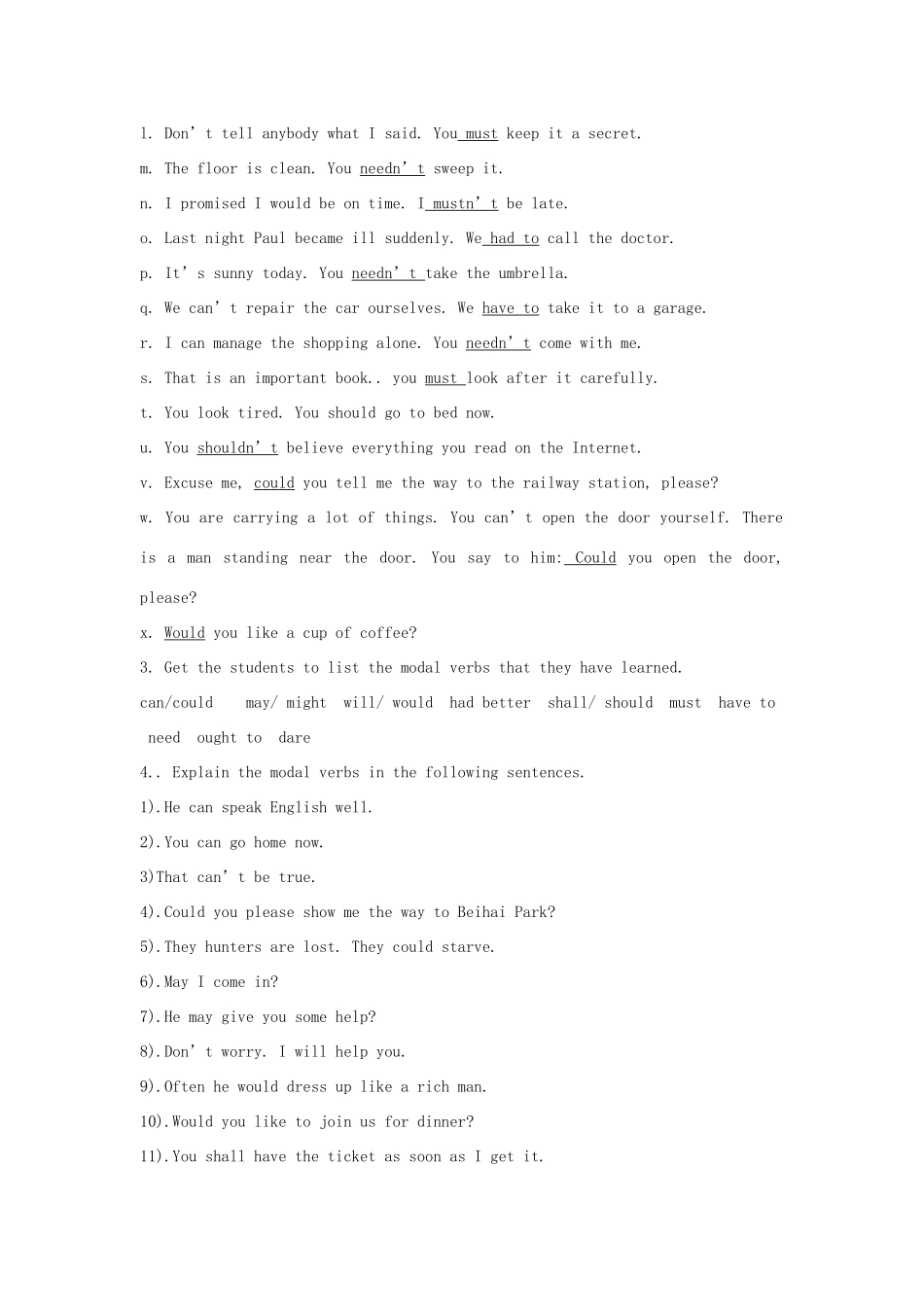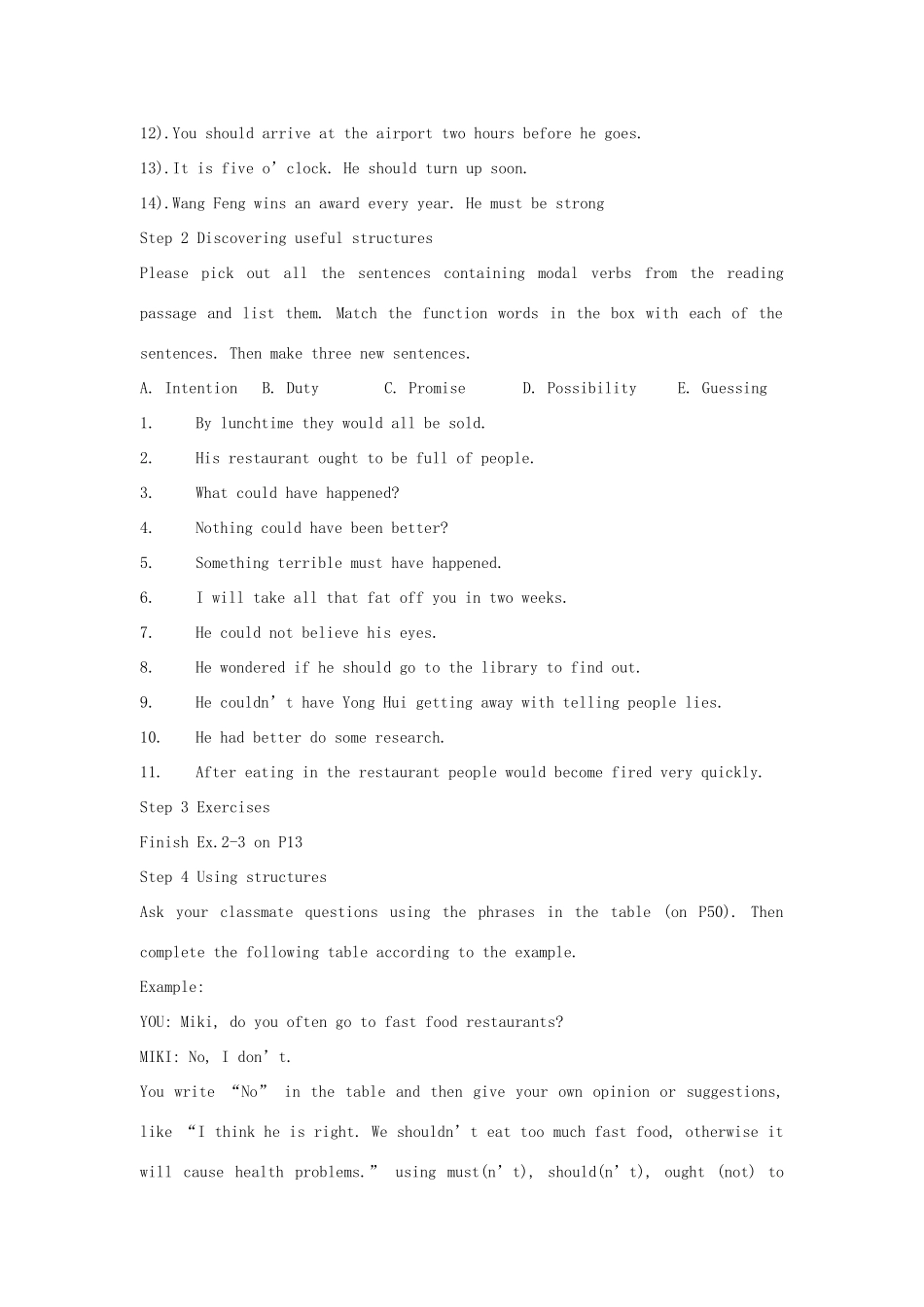英语:Unit2《Healthy eating》教案(3)(新人教版必修 3)Teaching Aims: Knowledge aimsStudents shall be able to learn the basic usage of the following modal verbs: can/could; may/might; must/have to; shall/should; will/wouldImportant points1. The usage of each pair of the modal verbs2. The sameness and difference among these pairs of modal verbs3. Correctly understand the change modal verbs bring to the sentences, that is, their functions.Step 1 Revision1.lead inT: First wealth is health. What should/shouldn’t we do to keep healthy? What kind of food must we eat to be strong? What ought we to eat to stay slim? __________________________________________________________2.Give some more situations to revise the usage of the modal verbs.a. My mother cooked a lot of food for me. She has been cooking all the morning.- She must be tired now.b. I have just eaten a lot of food.- You can’t be hungry now.c. My house is near the railway. It must be noisy there.d. She called me yesterday evening but I didn’t hear. I must have been asleep.e. The old restaurant must be very good. It’s always full of people.f. The new restaurant can’t be very good. It’s always empty.g. Where is Bob? Perhaps he is in the office. He may be in his office.h. Where is Jane? Perhaps she is reading the newspaper. She may be reading the newspaper.i. Perhaps she was ill yesterday. She might be ill yesterday.j. Perhaps she went fishing yesterday. She might go fishing yesterday.k. In China many children have to wear uniform when they go to school.l. Don’t tell anybody what I said. You must keep it a secret.m. The floor is clean. You needn’t sweep it.n. I promised I would be on time. I mustn’t be late.o. Last night Paul bec...


